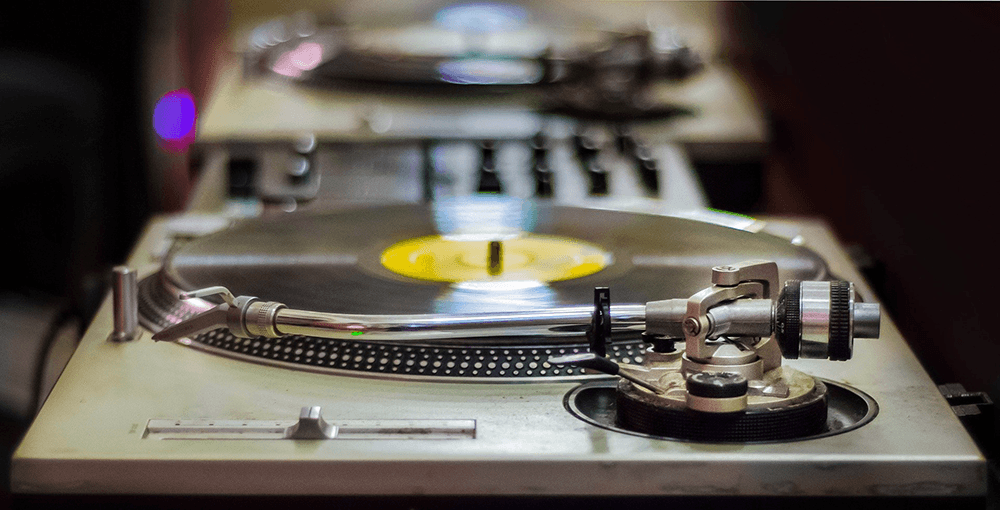
 Packing Tips
Packing TipsHow to Store Vinyl Records in a Storage Unit
Whether your vinyl records are antiques or retro revivals, you need to take great care of them to retain their high-quality sound. There's nothing like playing a vinyl record and hearing the clear and detailed sounds of your favorite music.
Vinyl records are known for their warmer sounds compared to other media formats like a cassette or digital copy. This is because they're analog copies that have grooves carved into them that include all the original information of the song's waveforms. This means that no data is lost, which can happen when compressing the sounds into a digital copy.
Since vinyl records have such detailed grooves, they require meticulous care. This means along with regular dusting and cleaning, they must also be stored properly. Records naturally fragile and need to be treated with respect as well.
Here's how to prevent damage to your vinyl records during storage that you can enjoy years of spinning your favorite tunes. By following these tips, you can store your records safely and retrieve them in pristine condition.
Should Vinyl Be Stored Flat or Upright?
Packing your vinyl records correctly plays a large role in the quality of their preservation. To prevent the records warping into the shape of a dish, always store vinyl vertically in a box. If you stack them horizontally, the records on the bottom can cave in from the weight and be unplayable because they're no longer straight. When you store them vertically, keep the liners on the records and turn the open end of the liner toward the sleeve's inside.
For the best results, pack the records tightly enough that they don't shift. If there's extra room in the box, place some dry packing paper inside the box to fill in the gap so no records are leaning sideways.
To know you have the right fit, no records should be leaning or slanting but you should still be able to easily take out a record without everything feeling too cramped. This formation protects your records from warping and breaking during storage.
Choose A Sturdy Storage Container
The quality and build of your containers also matter. Having a sturdy, stable container that can be sealed completely without air leaks will protect your records from damage. The most ideal choice is a cardboard moving box that meets the dimensions of your record cases.
Plastic bins also work but be sure to bring packing paper so that you can fit everything without them shifting or falling sideways. For your container, square corners are essential so that the corners don't warp the records.
All containers should be sealed with a lid or packing tape so that no moisture or dust enters. For extra measure, place a silica desiccant packet in the box so that excess moisture does not accumulate and ruin your records.
Clean Your Records Before Storing Them
Because dust damages the grooves in your records, it's important to clean them before putting them in storage. If you leave the dust on your records, they can become damaged as they sit in a box. For the best results, use a record brush to wipe away dust from the covers and liners.
Avoid using a cloth or rag, which can leave lint on the records, which can cause scratch damage. If you don't have a record brush, wiping the vinyl with a microfiber cloth and record cleaning solution in a circular motion can also work.
Limit Box Stacking
After you have packed your vinyl records away in boxes and sealed them, it's time to store them properly. Ideally, you should put these boxes on top of a wood pallet so that they don't touch the floor. This will help keep moisture at bay. Also, don't make a stack that exceeds 4 boxes.
Because vinyl are heavy, the bottom box can get crushed if you try to stack too many boxes on top of each other. In the best scenario, don't stack the boxes at all or place lighter items on top of them. Also, be sure that any box that you stack is stable and properly sealed so it can support any weight on top.
Get A Climate-Controlled Storage Unit
Last but not least, take the extra step to protect your vinyl records by getting a climate-controlled storage unit. This is one of the best things you can do to protect your records. Why? Extreme cold, heat, and moisture can seriously damage everything you love about your records: their sound, covers, and liners.
By getting a unit that stays a comfortable room temperature that also takes measures to mitigate moisture, such as an air conditioner or dehumidifier, you can keep your vinyl cool and dry. If you truly care about protecting your records, these units are worth the investment.
If you can't get a climate-controlled unit, it's important to take extra measures to protect your records from extreme temperatures and moisture. Put a desiccant packet into each box and wrap every box with insulation after sealing them. This will protect them against frost during the winter and be a barrier against extreme heat during the summer.
However, since heat can damage records and insulation can only do so much, at least find a unit with ventilation. Since this may not be enough to protect your vinyl against heat, it's better to wait for a climate-controlled unit to be available.
By following these tips, you can preserve all your treasured records and enjoy them for years to come.
We're Your Storage Solution!
Storage Rentals of America is your convenient self-storage solution. So come into our office or give our storage experts a call at 1-800-457-5678. Our call center is available 7 days a week and can help determine which storage unit size best fits your storage needs.



